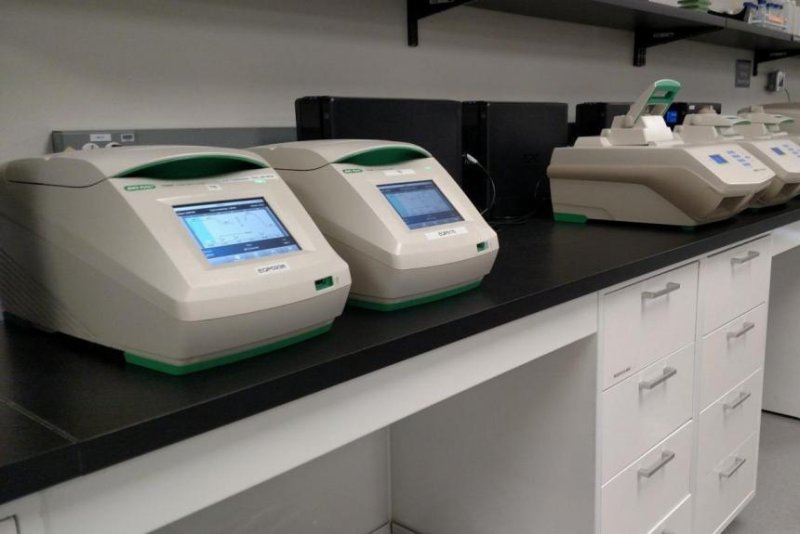A new blood test has been developed that can accurately and quickly identify genetic mutations associated with non-small-cell lung cancer, allowing clinicians to make earlier, individualized treatment choices -- a step forward in personalized cancer treatment. Photo by Biodesix, Inc.
April 19 (UPI) -- Researchers have developed a new blood test to identify a specific gene mutation in patients with non-small-cell lung cancer, or NSCLC, for better treatment options.
The new blood test can accurately and quickly identify actionable mutations linked with NSCLC. Actionable mutations are vital to the development and progression of tumors. The test can be performed quickly, with 94 percent of results available within 72 hours of blood draw, compared to tissue-based testing that can take weeks for results, delaying treatment.
Certain genetic mutations can be used to identify patients who may be sensitive or resistant to a certain type of cancer treatment, such as epidermal growth factor, or EGFR, mutations result in sensitivity to drugs that are EGFR inhibitors.
The new blood test utilizes a highly sensitive gene mutation detection method that is based on partitioning DNA into droplets to detect specific circulating tumor DNA mutations and RNA variants in the blood.
"This study is critical because it is the first to demonstrate the uptake of blood-based testing for actionable mutations in the non-hospital [community] setting," Gary A. Pestano, vice president of development and operations at Biodesix, Inc., the company that created the test, said in a press release. "Physicians and patients in a community setting may not have easy access to a large hospital or other diagnosis/treatment facility. This assay provides results within 72 hours from sample receipt."
Researchers tested more than 1,600 blood samples and found high sensitivity and specificity for detecting each type of mutation and in most cases, the blood test and biopsies showed the same results.
"These data highlight the adoption of mutation testing by the lung cancer community and demonstrate the utility of a centralized laboratory for the evaluation of actionable mutations from blood," Hestia Mellert, director of molecular development at Biodesix, said. "Physicians in remote locations may now have greater and more rapid access to this critical patient information."
The study was published in the Journal of Molecular Diagnostics.















